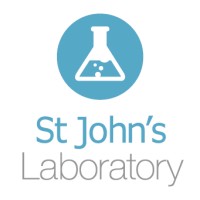MANEA / Unconjugated /
Product Details
| Description | Rabbit polyclonal to MANEA | |
|---|---|---|
| Conjugate | Unconjugated | |
| Clone | ||
| Target Species | Human | |
| Applications | WB | |
| Supplier | St John's Laboratory | |
| Catalog # | Sign in to view product details, citations, and spectra | |
| Size | ||
| Price | ||
| Antigen | ||
| Host | ||
| Isotype |
About MANEA
N-glycosylation of proteins is initiated in the endoplasmic reticulum (ER) by the transfer of the preassembled oligosaccharide glucose-3-mannose-9-N-acetylglucosamine-2 from dolichyl pyrophosphate to acceptor sites on the target protein by an oligosaccharyltransferase complex. This core oligosaccharide is sequentially processed by several ER glycosidases and by an endomannosidase (E.C. 3.2.1.130), such as MANEA, in the Golgi. MANEA catalyzes the release of mono-, di-, and triglucosylmannose oligosaccharides by cleaving the alpha-1,2-mannosidic bond that links them to high-mannose glycans (Hamilton et al., 2005 [PubMed 15677381]).[supplied by OMIM, Sep 2008]
N-glycosylation of proteins is initiated in the endoplasmic reticulum (ER) by the transfer of the preassembled oligosaccharide glucose-3-mannose-9-N-acetylglucosamine-2 from dolichyl pyrophosphate to acceptor sites on the target protein by an oligosaccharyltransferase complex. This core oligosaccharide is sequentially processed by several ER glycosidases and by an endomannosidase (E.C. 3.2.1.130), such as MANEA, in the Golgi. MANEA catalyzes the release of mono-, di-, and triglucosylmannose oligosaccharides by cleaving the alpha-1,2-mannosidic bond that links them to high-mannose glycans (Hamilton et al., 2005 [PubMed 15677381]).[supplied by OMIM, Sep 2008]
Experiment Design Tools
Panel Builders
Looking to design a Microscopy or Flow Cytometry experiment?
Validation References
Reviews & Ratings
| Reviews |
|---|
Looking for more options?
43 MANEA antibodies from over 10 suppliers available with over 5 conjugates.





